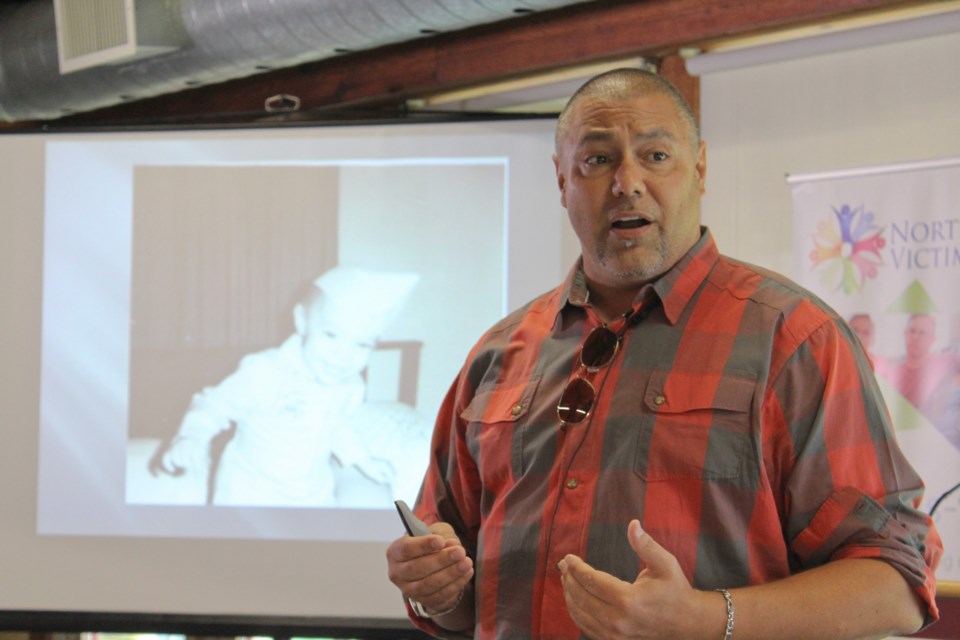During Corey Walsh’s career of helping others, he was neglecting one of the people who needed it most: himself.
For more than 30 years, Walsh, now a constable with the Durham Region Police Service, battled his demons by himself. He was three years old, living in northern Manitoba, when a neighbour began sexually abusing him. It continued for a decade.
Walsh was the guest speaker during Friday’s Embracing Change, Transforming Culture event put on by North Simcoe Victim Services at YMCA Geneva Park in Ramara.
In front of a room full of fellow police officers and other first responders, he presented his talk: “The Face of Mental Health.” That face, shown on a screen behind him while he spoke, belonged to a smiling little boy — Walsh — taken around the time the abuse started.
In 2006, Walsh was “volun-told” to work in a mental health unit that was being created at Durham police.
“Here I am, my No. 1 job is to help people with mental health issues and I can’t help myself,” he said.
He finally worked up the courage to do something about it. He filed a formal complaint against his abuser with the RCMP. It took seven years of court dates, travelling back and forth between Ontario and Manitoba, before there was a conviction. As a result of that investigation, seven other victims were identified.
“By the time we reached trial, I was the sole survivor (who showed up to court),” he said.
Some didn’t attend the hearings. Others had already taken their own lives.
Before he decided to confront his past, he had moved from Manitoba to southern Ontario, then back to Manitoba. That’s when his girlfriend was murdered — beaten to death after being sexually assaulted. That was 32 years ago, and the case remains unsolved.
He returned to southern Ontario “with a lot of trauma and a lot of baggage.” Everyone has baggage, he said. “Mine just happens to fit into an 18-wheeler. Some just have a carry-on.”
His message was aimed at the first responders in attendance. While they carry on their duties of protecting and saving people in their communities, they need to look out for one another’s mental health, too.
“We put on the vest and gun and think we’re invincible. We think we are gods,” he told them. “We all, at any moment, can be that person (dealing with their own trauma). With that in mind, why do we do such a crap job at treating each other?”
He still gets calls from officers who want to talk about their own issues but don’t feel comfortable going to their superiors.
“It’s because of this false image that we try to portray of who we are, and it’s crippling us,” he said.
Dealing with the trauma doesn’t make one weaker, he assured the audience.
“Those of us who are broken are evolved. Once you’ve been broken down to feel like nothing and you get back up, you’re evolved,” he said. “I don’t care what friggin’ rank you are. I don’t want to be a broken individual who’s a shell of a human being at the end of the day.”
Friday’s event coincided with the national Victims and Survivors of Crime Week.
